Revolutionizing Access to Public Services in Guinea Bissau
August 25, 2023
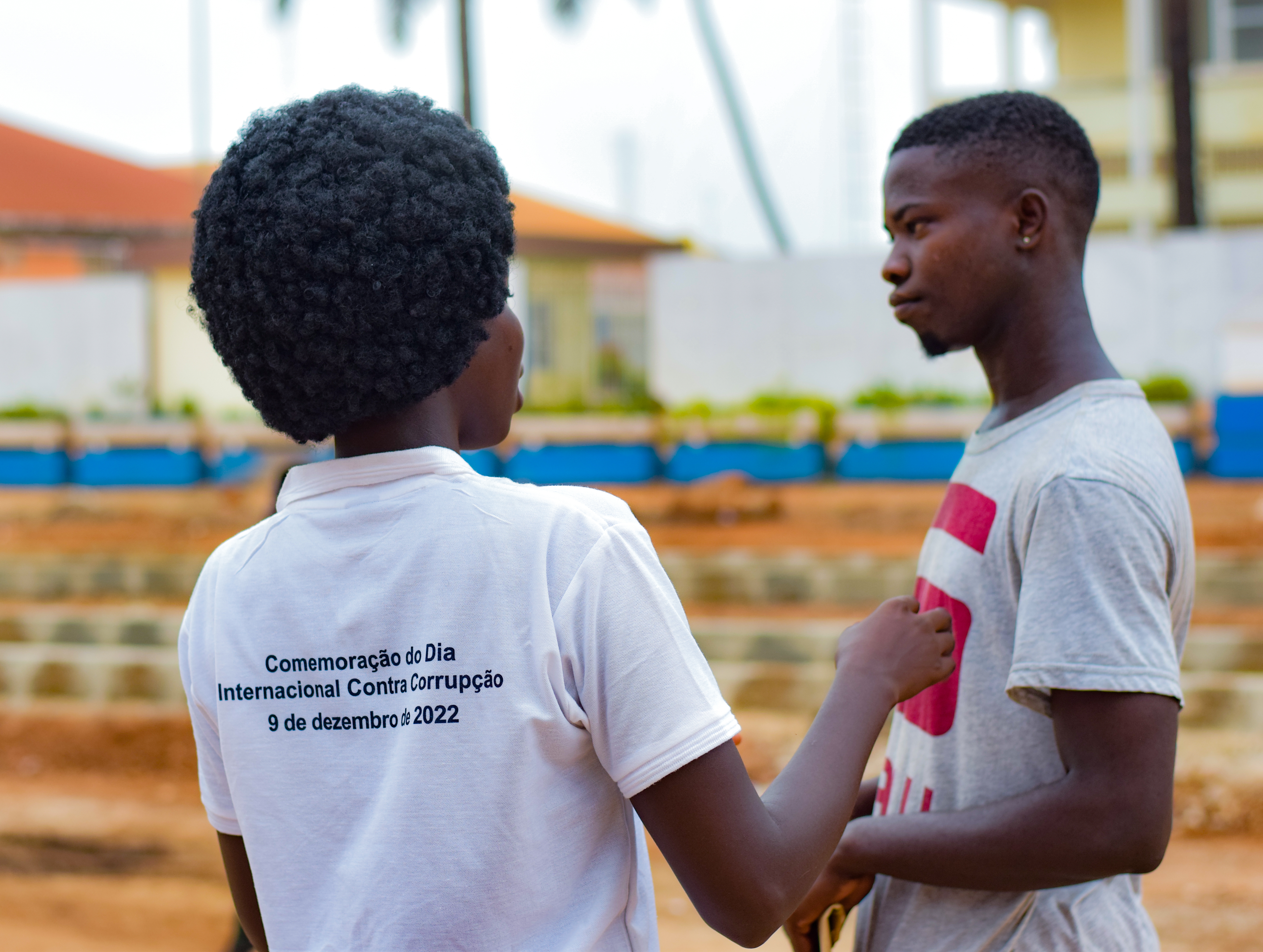
“A transparent user journey”, anti-corruption volunteers from the NGO informing and guiding users arriving at the Ministry of Justice.
In a constantly changing world, where the demand for efficient and quality public services has never been higher, the Accelerator Lab Guinea Bissau has since the year 2020, been focused on tackling the lack of it, and the challenges that comes along with it like the factor of inadequate information about the very processes and mechanisms that govern these services. This undertaking encompasses a transformative element: the process of process redesign within the ambit of development work, which not only facilitates the alignment of procedures with cultural and local frameworks but also entails the deconstruction of historically embedded systems dating back to colonial epochs. Notably, legal services emerge as a particularly arduous facet, seldom oriented around the user and inherently inscrutable by their very nature. The culmination? A tangled web of extended processing times, mismanagement, opacity, and yes, the ever-looming shadow of corruption. Surprisingly, it is at times the modest rearrangements that herald substantial transformations in the realm of user experience.
The corner stone and beginning of this journey took place in June 2021, when a Collective Intelligence workshop merged stakeholders, ranging from officials in the Ministry of Justice to UNICEF representatives and the Lusófona University Student Association, with the goal to find solutions that would alleviate the challenges and pave the way for enhanced accessibility and quality of service delivery in the Ministry of Justice.
Over the past three years, the Lab has been focused on tackling this intricate issue. Their approach? A portfolio of multiple points of interventions, experimenting with solutions spanning digitalization, statistical analysis, optimizing physical spaces, and Mobile Justice. All with the citizens’ needs in mind.
This year, 2023, the Accelerator Lab joined forces with the UNDP Legal Design Fellow to conduct a comprehensive baseline survey that could pinpoint the bottlenecks, choke points, and areas for transformation. Based on these findings, a package of solutions was designed and co-created together with staff and users of the Notary, with the objective to optimize the workflow, create greater access to the service and reduce the time required for each step in the process.
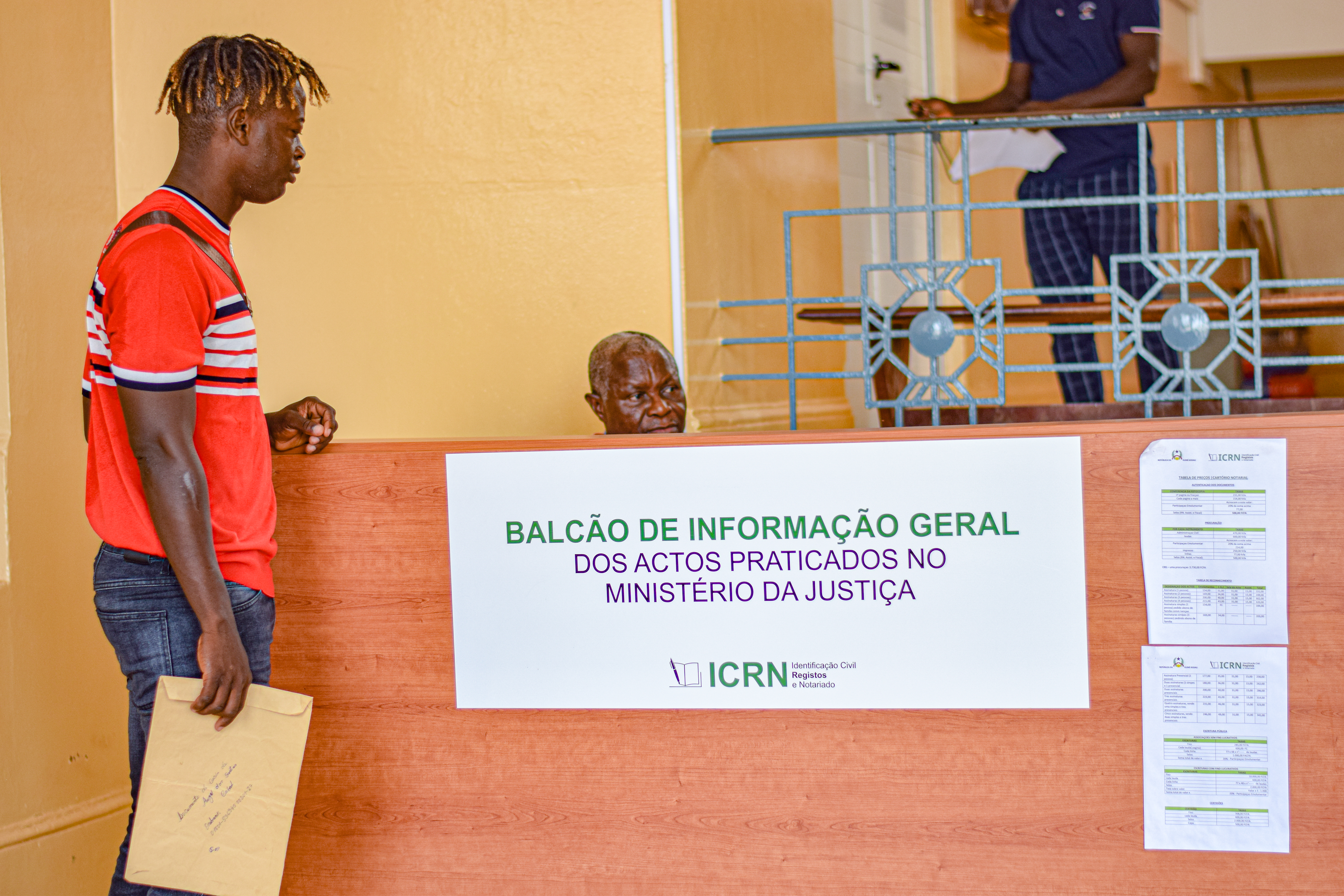
The Information desk, one of the co-created solutions being tested at the Ministry of Justice appointing users in the right direction, answering queries and providing prices for the different services.
The Notary, “A simple service with difficult access”
After analyzing the baseline survey, a range of bottlenecks and areas for improvement were discovered and a revamped workflow was shaped through collaboration with staff and users of the Ministry of Justice, with the aim to streamline efficiency and improve the workflow and user journey.
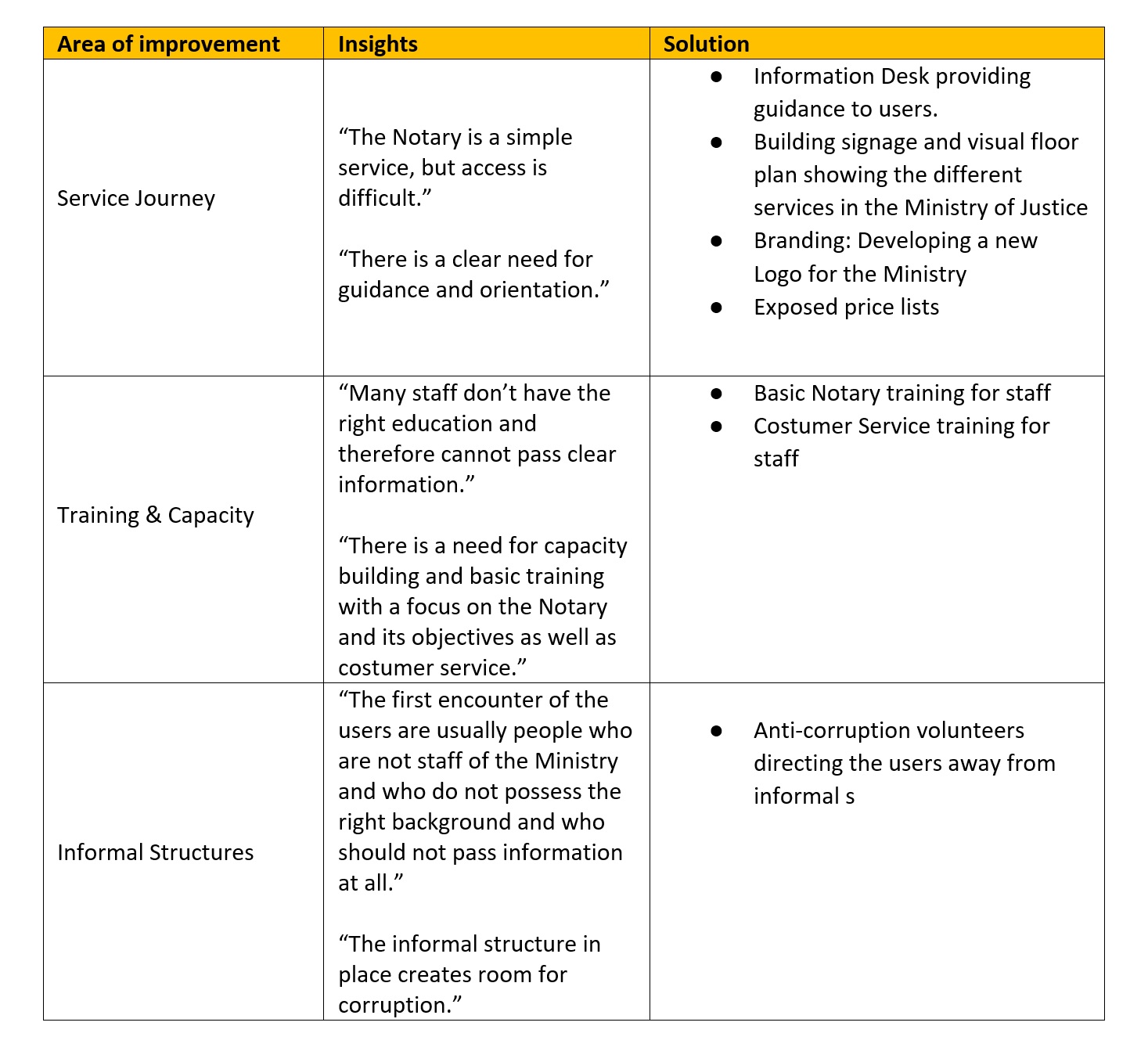
Diagram showing bottlenecks, insights, and areas of intervention.
Trying out what works and not
The Lab's achievement of success was the result of a comprehensive and collaborative effort, involving the implementation of a variety of carefully devised solutions. These solutions encompassed several key areas, each contributing to the overall positive outcomes. Over six weeks, different solutions were put into place and tested, and continuous feedback from users and staff informed and shaped the iterations of the solutions.
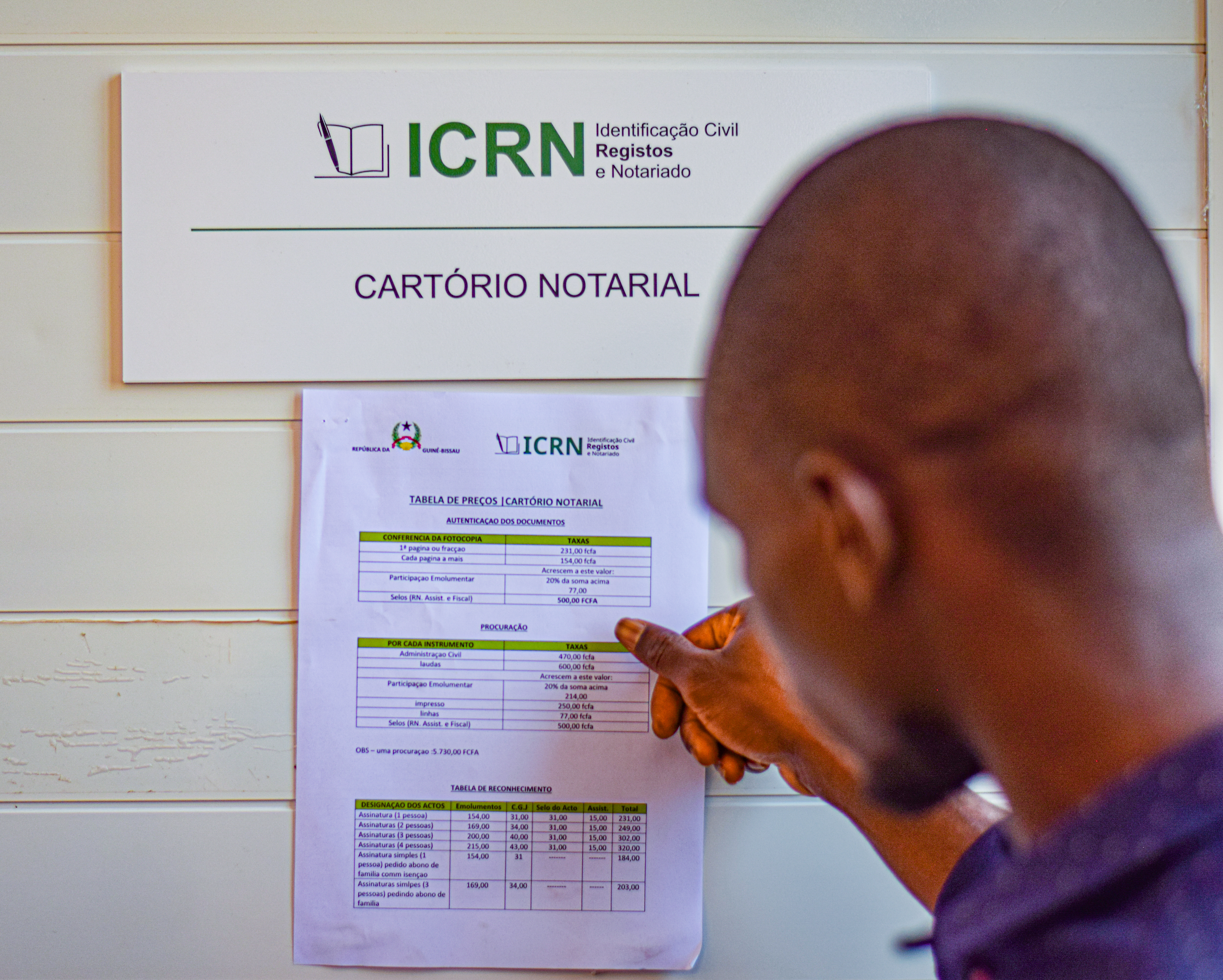
User checking the exposed price list at the Notary, Ministry of Justice.
"Transforming the User Journey”: Enabling Enhanced Access to Public Services
Firstly, decision to make price lists for the services offered by the Ministry publicly available marked a significant step towards transparency. This move allowed users to access information about costs and fees, fostering a sense of openness and trust. Combined with the setup of an information desk at a strategically chosen location proved to be an effective means of providing guidance and support to users. This initiative made information easily accessible and ensured that users could navigate the Ministry's services with ease. The involvement of anti-corruption volunteers in assisting and guiding users was a commendable initiative. Their presence not only deterred corrupt practices but also reassured users that their interactions within the Ministry would be fair and ethical. The thoughtful placement of wayfinding signage further contributed to the user experience. Equipping Notary staff with essential knowledge and skills through dedicated training sessions was an investment that paid dividends. Staff members trained in the fundamentals of the Notary field, effective communication techniques, and exceptional customer service were better equipped to provide top-notch assistance to users.
The evidence of transformation was measured through a pre-postsurvey, as the Lab went back to the Ministry after testing the solutions, to gather data on the staff´s and user´s perception of the workflow and service delivery.
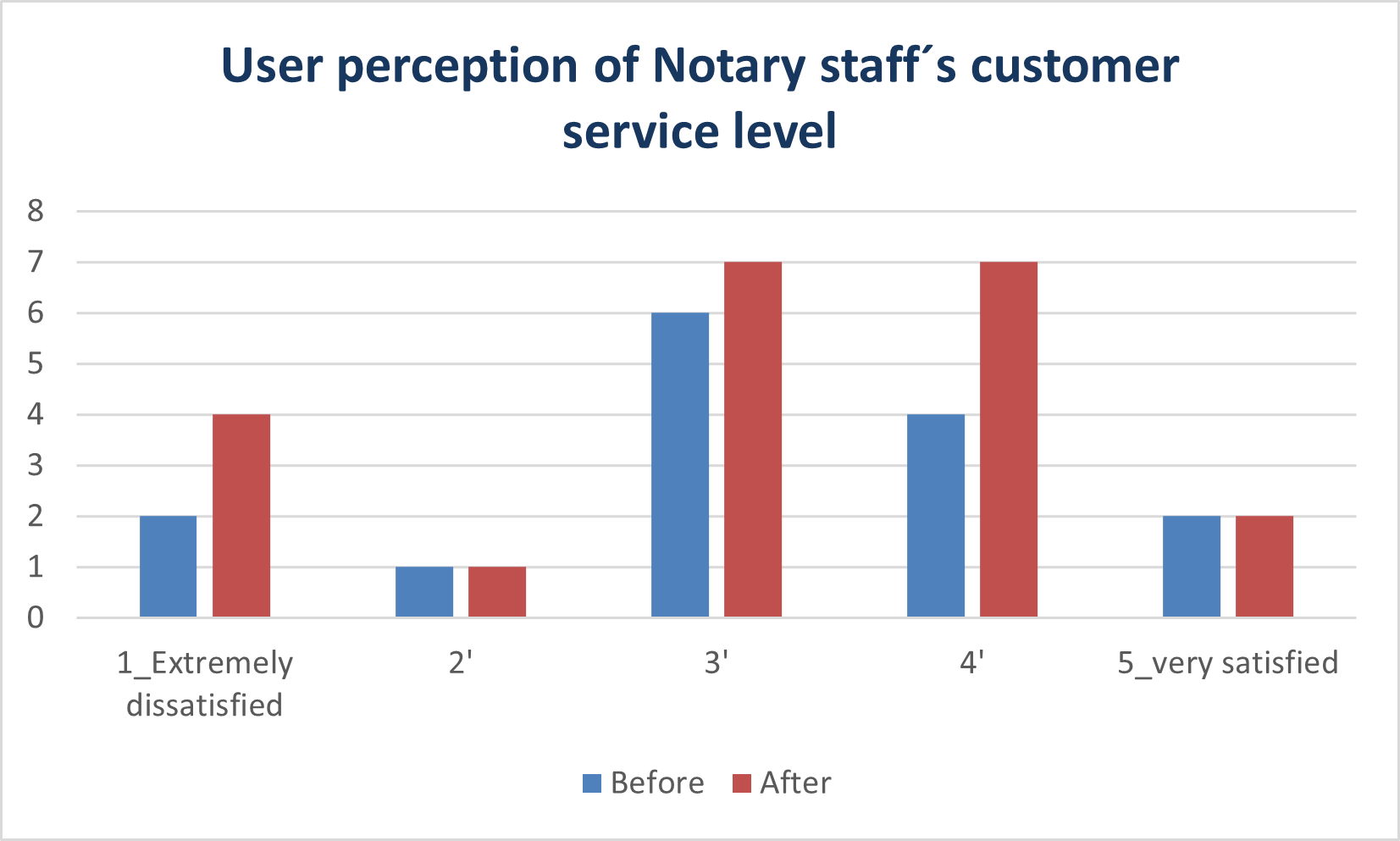
Pre-post survey results showing user´s perception of customer service level
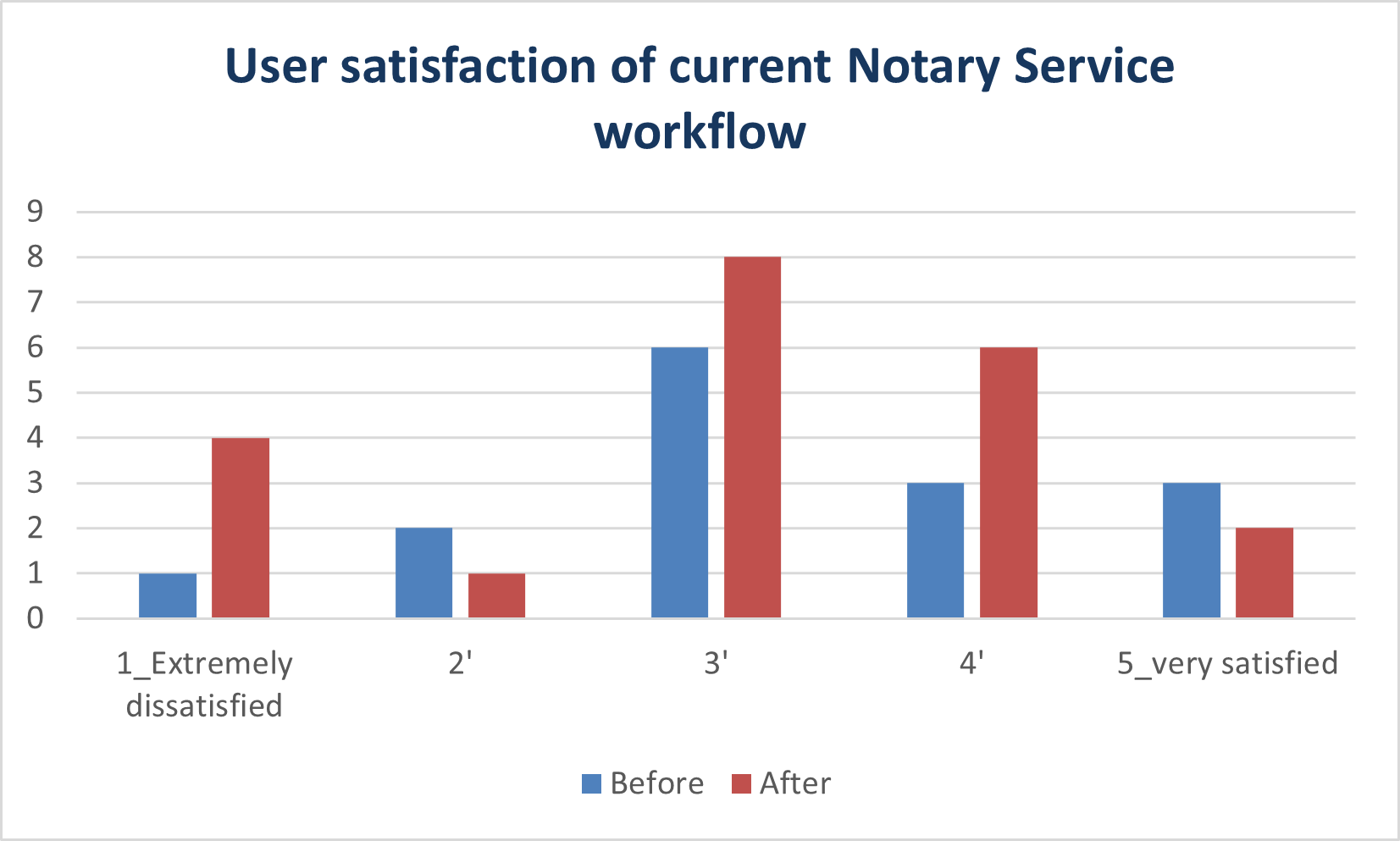
Pre-post survey results showing user´s perception of workflow satisfaction
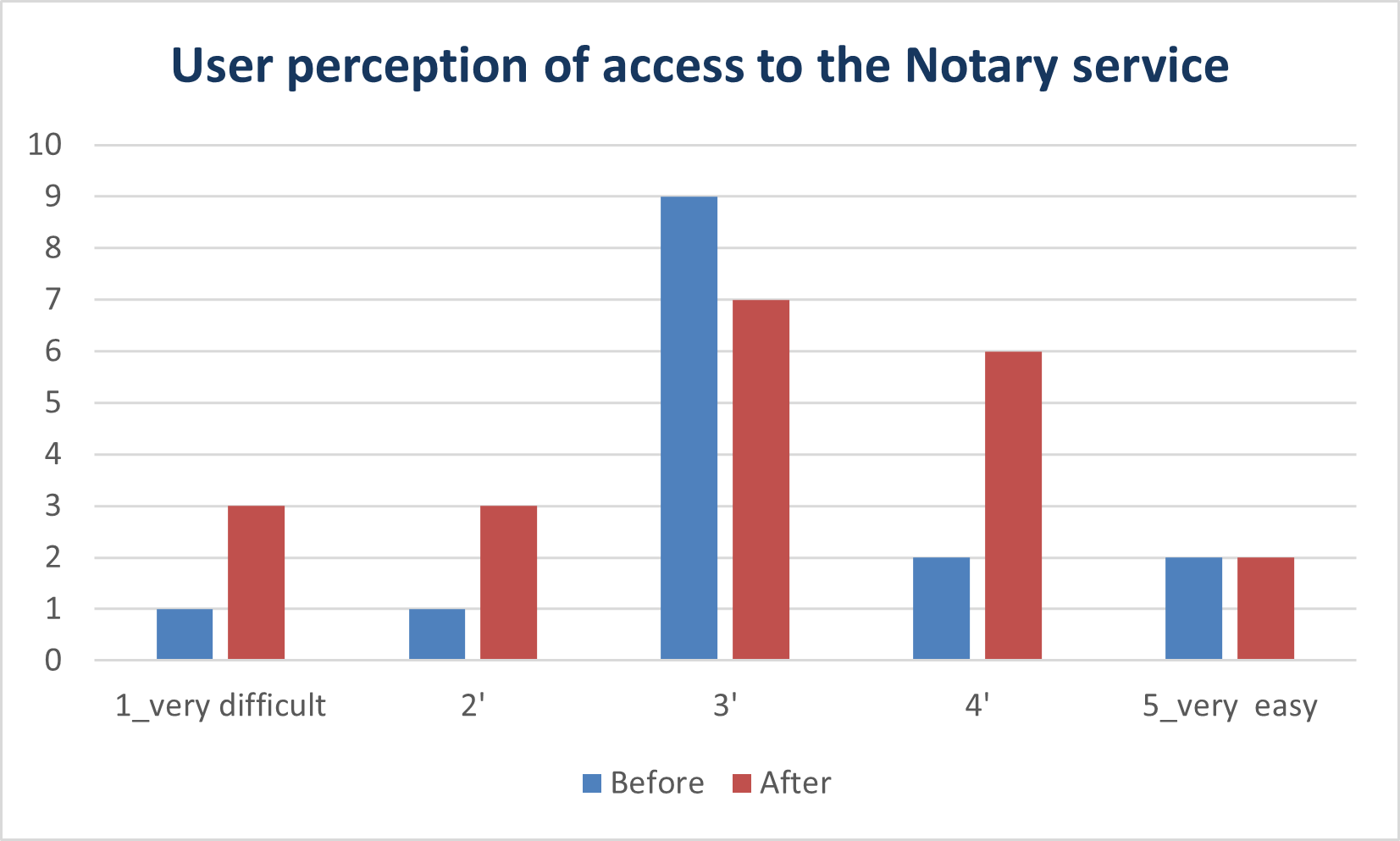
Pre-post survey results showing user´s perception of access to the Notary
Lessons learned
This first learning cycle - methodical speaking - enabled us to uncover fresh insights in the domain of workflow processes within the Ministry of Justice. Importantly, it highlights that process redesign doesn't necessarily demand extensive traditional investment, as data shows we achieved impactful changes through interventions that required minimal funding. These interventions were swiftly translated into actionable steps, underscoring their effectiveness. Some of the main insights were:
● Identifying and addressing underlying needs of users (instead of only investing in institutions) promises greater access to public services.
● Understanding the landscape around the challenges fills gaps in the current practice more easily and sustainably
● Investing more in anti-corruption is a need due to informal structures are in place.
● Training staff and building capacity ensures a quality service delivery.
● Trainings provided made the staff feel valued.
● Co-creating solutions with staff, users, and other stakeholders can ensure that the solutions are relevant and responsive to the needs of all parties, leading to greater buy-in, co-ownership and sustainability.
● Implementing co-created solutions in the respective categories ensured a more efficient and effective Notary system that provides higher-quality service delivery.
● Addressing various aspects of user interaction within the Ministry and a multi-faceted approach contributed to the overall positive outcomes.
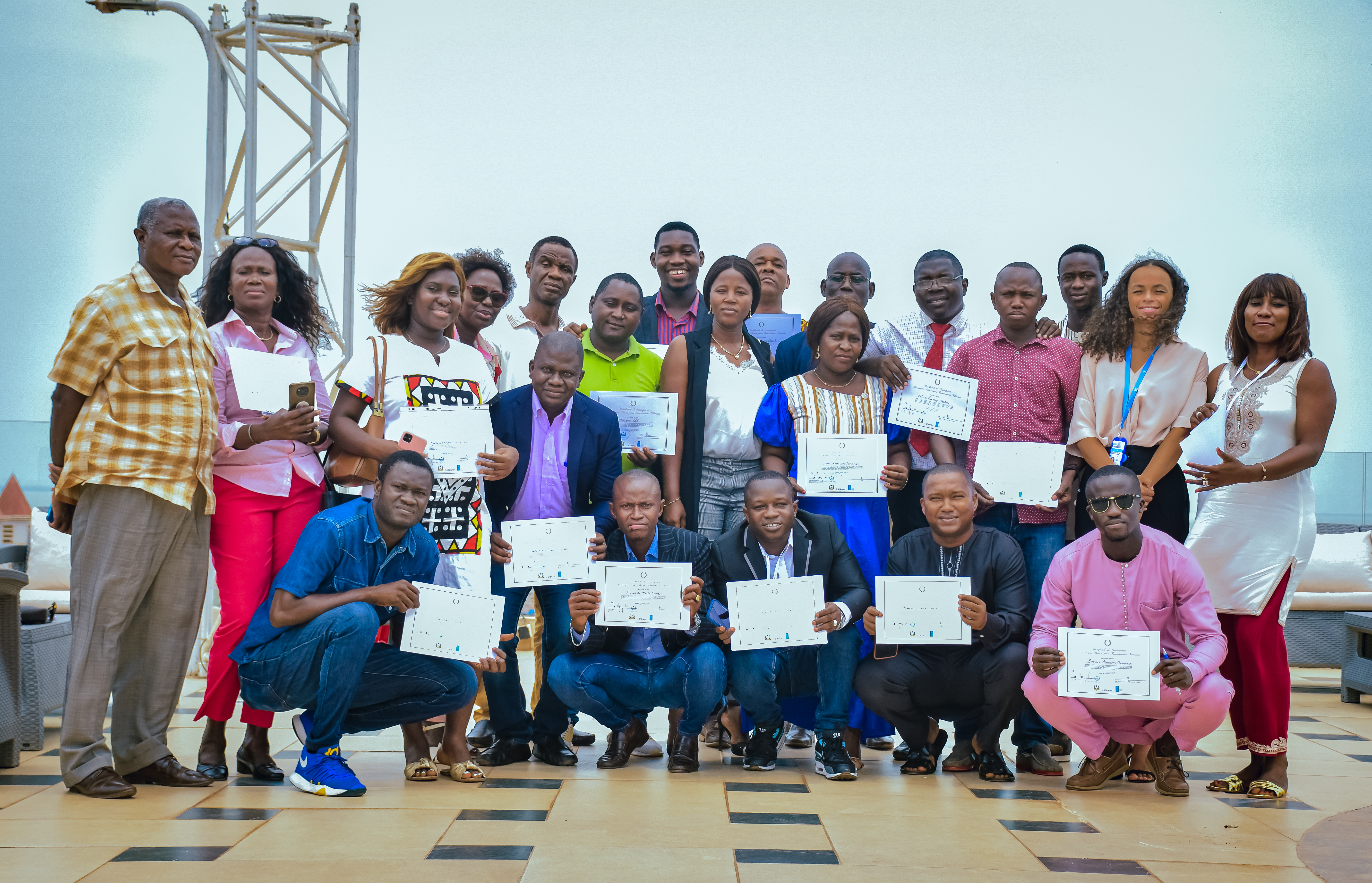
Notary staff from the region of Bissau with certificated after completing the first Notary training ever provided at the Ministry of Justice.
Next steps
Transparency forms the cornerstone of this experiment, and the Lab recognize significant potential for introducing anti-corruption measures, a step that users strongly advocate. A well-defined workflow and easily accessible information are crucial when it comes to mitigating corruption risks. On the other hand, from the staff's standpoint, there's a consensus that maintaining a consistent regime of training throughout one's career journey, coupled with the promotion of merit-based advancement through the HR department, would greatly enhance the system.
Currently, the Lab is in the process of summarizing the synthesis for presentation to key stakeholders. The Ministry's leadership has shown interest in scaling this initiative. However, given the recent change in the Government, the next phase involves presenting the results to potentially secure support for further expansion. As the journey continues, the Accelerator Lab Guinea Bissau is at the forefront of innovation, bringing in a fresh era of accessible and high-quality service delivery.
This blog was co-written with the Accelerator Lab Guinea Bissau, Head of Exploration, Victor Pereira.

 Locations
Locations
